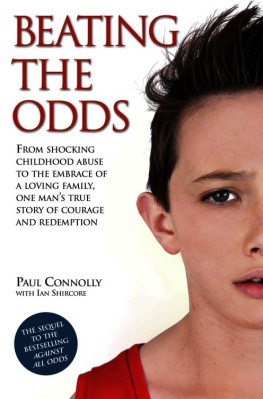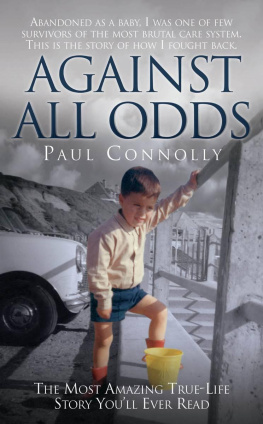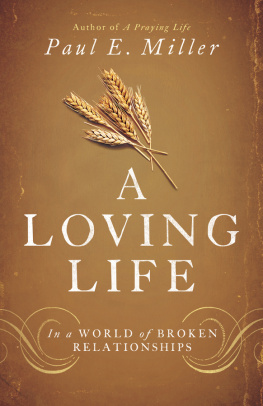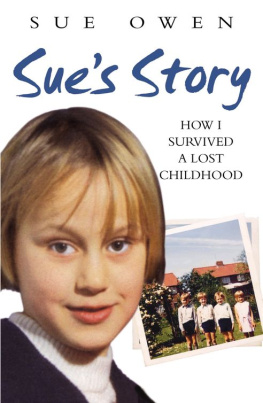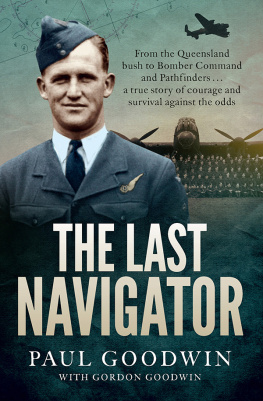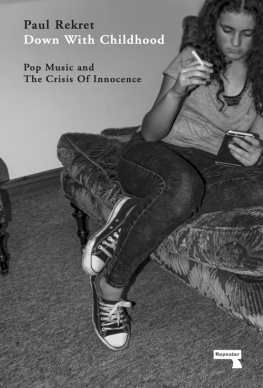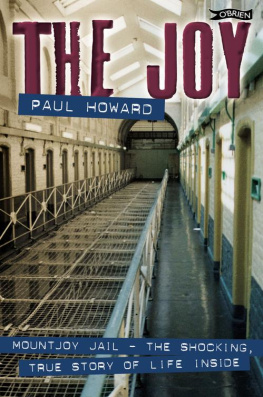I remember the morning in 2012 when I opened Paul Connollys first book, Against All Odds. Straight away, I knew that our paths must cross.
Throughout my career in prisons and charities, I have seen how two particular factors can stunt a persons chances in life. One is illiteracy, which does terrible things to a young persons self-confidence, as well as making school and jobs very difficult. Its no coincidence that nearly half (48 per cent) of the young people arrested in the 2011 London riots had left school unable to read properly. The other is the lack of positive role models to help children build up their self-esteem and ambitions. Often that is down to bad experiences of the care system. Only one person in fifty in the UK ever sees the inside of a prison cell, but four out of ten prisoners under the age of twenty-one have been in care as children.
Levelling the playing field is my passion. My first career, in HM Prison Service, was all about helping people change for the better and avoid re-offending. I started out at HMP The Verne, in Portland, Dorset, and ended up with national responsibility for training and support of staff involved in delivering treatment. So Ive worked with thousands of people in prison whose lives have been extremely difficult, many of them brought up in care and many of them illiterate.
Experience and opportunity obviously help shape who we are, but I dont believe our background sets our character and behaviour or forever decides our destiny. Pauls story shows it doesnt always have to be like that. But there is a well-trodden path from the care home to the prison, and the fact Paul has never travelled that path is testament to his drive and determination to build a life for himself.
We all know that nagging voice of doubt at our shoulder that tells us we are not good enough. Imagine what that inner voice tells you when your parents abandon you and other adults take delight in reinforcing your negative thoughts about yourself. If you add in the huge problem of not being able to read or write, life becomes an uphill struggle that would daunt the most determined mountaineer.
I believe those early negative voices can become self-fulfilling prophecies, defining people for the rest of their lives. So, after sixteen years in the prisons, I decided I wanted to try and help youngsters before their lives went off-track or to help them change, if that had already happened. I became Director for South West of England for the Prince of Waless charity, The Princes Trust, which helps young people develop the skills and confidence to succeed.
Many of the young people I met during my four years there were brought up in care or without adult role models and had ended up in prison. Many also lacked the basic skills of reading and writing. The Princes Trust does an amazing job of changing young lives, but when I had the chance to become CEO of Beanstalk (formerly Volunteer Reading Help), I knew I had to take it. Beanstalk gives one-to-one reading support to primary school children who are not learning to read properly and I was excited to get this chance to tackle the problem at an early stage.
Beanstalk has a national network of trained volunteers. As well as helping with reading, these people are often the only positive adult role models children spend time with. Twice-weekly sessions with a reading helper slowly builds confidence and ambitions, as well as their reading skills. Paul has told me what a difference it would have made if hed had a trusted adult to help him. For the children of the St Leonards home, this kind of support was not available though, and Paul still couldnt read at the age of twenty-five.
As I read Against All Odds, I was inspired by Pauls journey and horrified by what he had endured. It was a brave book and a story that needed to be told, because, despite everything that happened to him, and some of the things he did as a result, Paul has shown great courage and resilience. Hes an inspiration to many people who suffered in their own early years and I couldnt wait to recruit him as an ambassador for Beanstalk, to inspire children with new challenges and help them realise the possibilities in their lives.
Pauls childhood was tough and he has come a long way to discover his real self and give his life real meaning. The work he does now changes peoples lives, mentally and physically, by helping them set and achieve undreamed-of goals. He is living proof that your past does not have to define your future. Through his work and his personality, he continues to inspire people every day. I know that Beating the Odds will inspire you, too, though its new revelations about the appalling abuse at St Leonards are highly disturbing.
Pauls struggles with the ghosts of his past, the memories of his childhood and the curse of illiteracy make fascinating, sometimes painful, reading. Yet, as he says at the end of the book, its all good. His eyewitness evidence has made him incredibly useful to me and Beanstalk in our literacy campaigns, to Lord Listowel in his fight to improve the lot of children leaving care homes, and to people like the staff at Ramsden Hall school, where he works with troubled and neglected kids.
Beating the Odds is not for the squeamish. And its certainly not a book for children. But what I want is for all the children in this country to become easy, confident readers and one day, at the right age, to be able to read this story and find their own inspiration in it.
Right now, though, Id like everyone who reads Beating the Odds to recognise that we have a real chance, through Beanstalk and other organisations like it, to make sure no child grows up without that essential ability to read. Its time we put an end to this issue, and everyone can play a part. If you would like to know how you can help, please visit www.beanstalkcharity.org.uk.
Sue Porto
I t was an ordinary lunchtime in the bar of the Blind Beggar. You may have heard of it. This was the pub in Whitechapel, just a mile east from the banks and finance houses of the City of London, where the notorious 1960s gangster, Ronnie Kray, coolly gunned down an underworld rival. He did it in front of dozens of witnesses. When they were questioned, every single one of them swore blind they had seen nothing.
Now I was in the Blind Beggar, my gun stuck in the back of my belt. And the man I was there to kill was standing, laughing, by the bar.
Prescott. That smug, oily bastard. Prescott had been the boss of St Leonards, the childrens home in Hornchurch, Essex, just east of London, where I had spent the worst years of my life. When the case came up at the Old Bailey, twenty or thirty years too late, hed been sentenced to two years for indecently assaulting four boys at the home. But I knew this was just the tip of the iceberg. Alan Prescott had presided over ten years of violence, rape and mental, physical and sexual abuse that had ruined the lives of any number of children in a home that for all of us had been a living hell. Many of them, I knew now, had come out so damaged that they were already dead. Several had been killed by heroin. One had gone off the clifftop at Beachy Head. Another, the best of them all, had thrown himself in front of a train. And here was Prescott, released straight after the trial because of the time hed already served on remand, laughing and enjoying a beer in the Blind Beggar.
He was with a friend I recognised, another of the staff from the home. The case against Haydn Davies collapsed when the police announced that they had lost essential video evidence from witness interviews. Hed been charged with assaulting boys at St Leonards, and had a previous conviction in 1981 for buggery. Now the two of them, Prescott and Davies, were just a few feet away, across the bar. I knew what I had to do. If the law wasnt going to give these bastards the kind of sentence they deserved, then I was. I had come to get Prescott, but I could spare a bullet for Davies.

